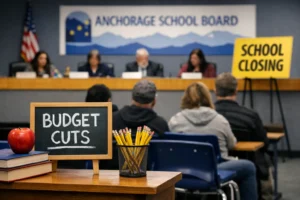Tribal communities in Alaska are sounding the alarm as Alaska food program funding cuts threaten food security and local economies. Federal grants totaling over $5.2 million supported the USDA’s Local Food Purchasing Assistance (LFPA) program across Alaska’s tribal regions.
The LFPA program connected villages like Tyonek to regional food producers, helping build fragile supply chains in remote communities. Tyonek Grown Programs Manager Cayley Eller says their village used LFPA funding to expand local agriculture and feed families year-round.
Without direct road access, Tyonek must fly in outside produce, making self-sustained agriculture critical to daily survival and nutrition. Eller emphasized that LFPA money couldn’t fund salaries or operations, only food, which went straight to community tables and local farms.
The funding allowed Tyonek to buy from more than 30 in-state producers, focusing strongly on Indigenous-owned food businesses. They also traded with nearby tribes like Knik, purchasing locally grown carrots and potatoes, strengthening Alaska’s rural food network.
While villages brace for disruption, federal leaders have stayed silent, offering no comment on the impact of sudden funding cuts. Senators Lisa Murkowski and Dan Sullivan, as well as Representative Nick Begich, made no public statements.
Meanwhile, Elon Musk, a key figure in the DOGE Caucus, announced the cuts could save $150 billion by fiscal year 2026. Despite the projected savings, communities dependent on LFPA support now face uncertain futures with few options for replacing resources. Eller and other advocates continue urging federal leaders to reconsider the food program funding cuts before the damage becomes irreversible.









